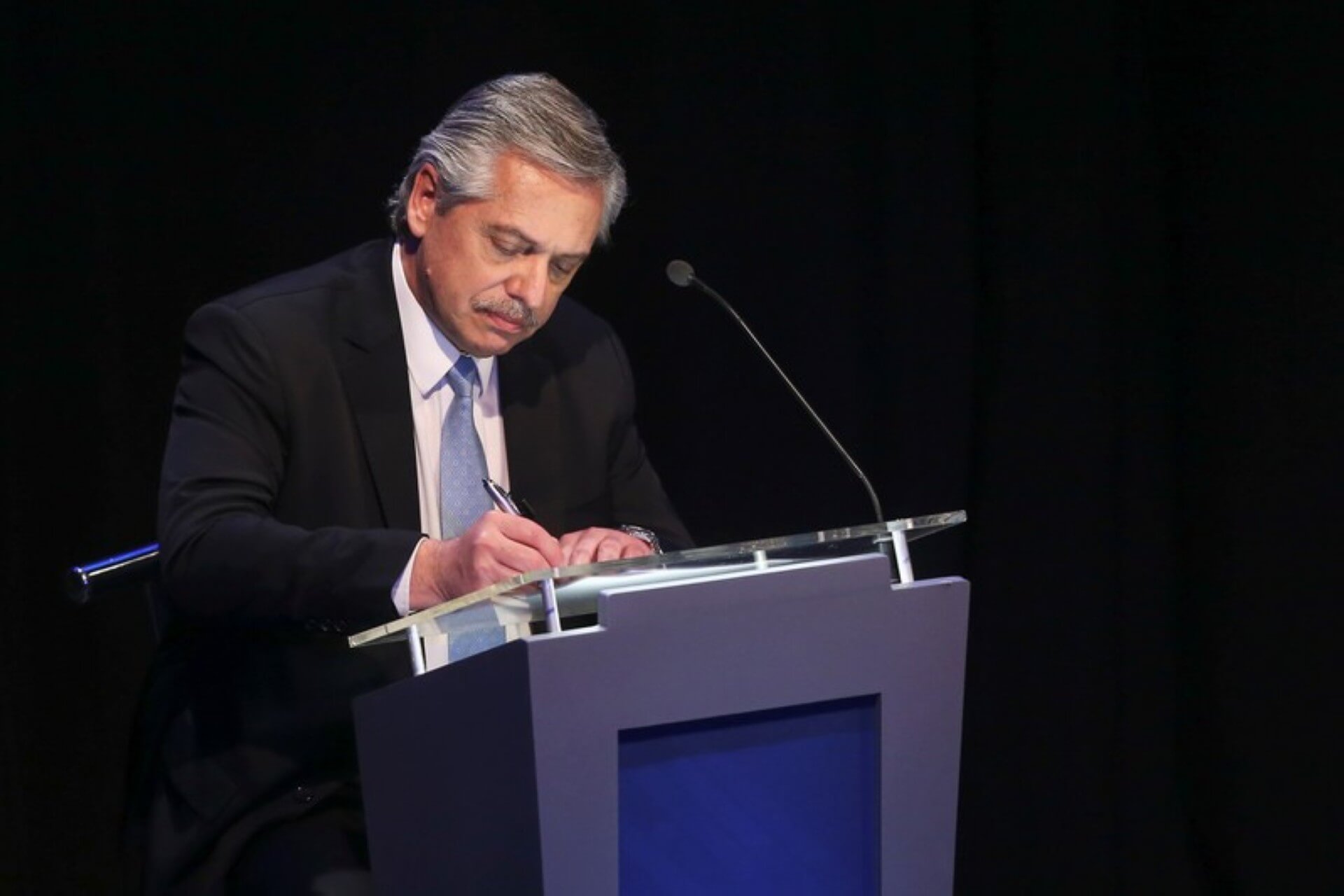Argentina is leveraging its position as the new rotating chair of regional intergovernmental organization Mercosur to once again push its claims over the Falkland Islands, which it refers to as the Malvinas.
Having taken over from Uruguay earlier this month, Argentina has used its position to launch a more aggressive push to claim sovereignty over the disputed islands, which the United Kingdom (UK) claims as a British Overseas Territory (BOT). This is a concerted effort by the current administration —led by President Alberto Fernández and Vice President Cristina Fernández de Kirchner, who have been in office since December 2019—to usher in a marked shift from the more passive polices on the South Atlantic islands under Fernández’s predecessor, Mauricio Macri.
The Fernández administration has made the Malvinas a key pillar of its foreign policy in both multilateral and bilateral engagements. For instance, during a meeting between Argentinian Foreign Minister Felipe Solá and his Portuguese counterpart Augusto Santos last Friday, the Buenos Aires representative called on Lisbon to consider the Falkland Islands as a “litigation issue and not a British Overseas Territory”.
Buenos Aires’ claims over the islands were backed by the governments of Brazil, Paraguay, and Uruguay, and also by associate members Bolivia, Chile, and Colombia during the 56th Heads of State summit of Mercosur in July. Since then, the government has repeatedly made mention of its territorial dispute with the UK in various multilateral forums, including the Organisation of American States (OAS), the Community of Latin American and Caribbean States (CELAC), and the G77 + China.
In fact, in August, Argentina laid out a three-point roadmap that consisted of three goals: re-registering its claim to the islands in the Organization of the American States (OAS), re-imposing legal threats against oil companies operating in the region, and pressing the European Union to force the United Kingdom to remove the Falklands from its list of overseas territories and list it as a disputed territory.
The government also aims to extend the outer borders of Argentina’s continental shelf, impose fines on vessels caught illegally fishing in South Atlantic waters, and introduce criminal proceedings against companies operating in the area, including seizing assets and arresting company executives.
Argentina endeavours to pass these bills through the United Nations Decolonization Committee, also called C24, where it has called for a peaceful and diplomatic solution to the dispute between itself and the United Kingdom (UK).
Aside from Mercosur, Fernández has also used membership in the UN to reiterate Buenos Aires’ claims to the Malvinas. In a speech to the UN General Assembly in September, the Argentinian leader reaffirmed his position that the sovereignty of the islands rests with Argentina, saying, “I want to reaffirm the legitimate and imprescriptible sovereign rights of the Argentine Republic over the Malvinas, South Georgia and South Sandwich Islands, and the surrounding maritime spaces, which are an integral part of the national territory of Argentina and which have been illegally occupied by the United Kingdom for more than 187 years.”
The Falkland Islands form an archipelago in the South Atlantic Ocean on the Patagonian Shelf and is technically a British overseas territory. The islands have internal self-governance, while the UK looks after their defense and foreign relations. Although the islands have been settled by the French, the British, the Spanish, and the Argentines, Britain formally brought the islands under its control in 1833. However, Argentina contests these claims, saying that the islands came under Argentine control after it gained independence from Spain in 1816. In fact, the Argentinian military invaded the islands in 1982; although British administration was back in place just two months later after a brief and bloody war during which 649 Argentinian soldiers were killed and over 11,000 were captured, leading to Argentina’s surrender.
In a 2013 referendum on the political status of the Falkland Islands, residents were asked: “Do you wish the Falkland Islands to retain their current political status as an Overseas Territory of the United Kingdom?” The vast majority, or 99.80%, of Falklanders are in favour of remaining as a UK overseas territory. In fact, just 3 people voted no, while 1,513 people voted yes.
Yet, despite this grim reality, Argentina continues to aggressively press for control over the islands in order to project itself as a regional power, and deflect attention from prolonged political and economic instability. Against this backdrop, it has leaned on regional allies for support. For example, it will use its new position as the chair of Mercosur to push for Bolivia to be made a full member, as La Paz has historically backed Argentina’s claims over the Falklands. Argentina has also looked to Venezuela and Nicaragua, as well as non-regional powers such as Iran, Russia, and Turkey. Crucially, Fernández has sought to bolster its engagements with China, which has often supported the territorial ambitions of its allies, such as Pakistan.
Argentina Uses New Position as Mercosur Chair to Claim Sovereignty Over Falklands
Argentina took over from Uruguay as the rotating chair of the regional intergovernmental organisation and has used its position to once again push its claims over the Falkland Islands.
December 22, 2020

IMAGE SOURCE: AGUSTÍN MARCARIAN / REUTERSArgentinian President Alberto Fernández
